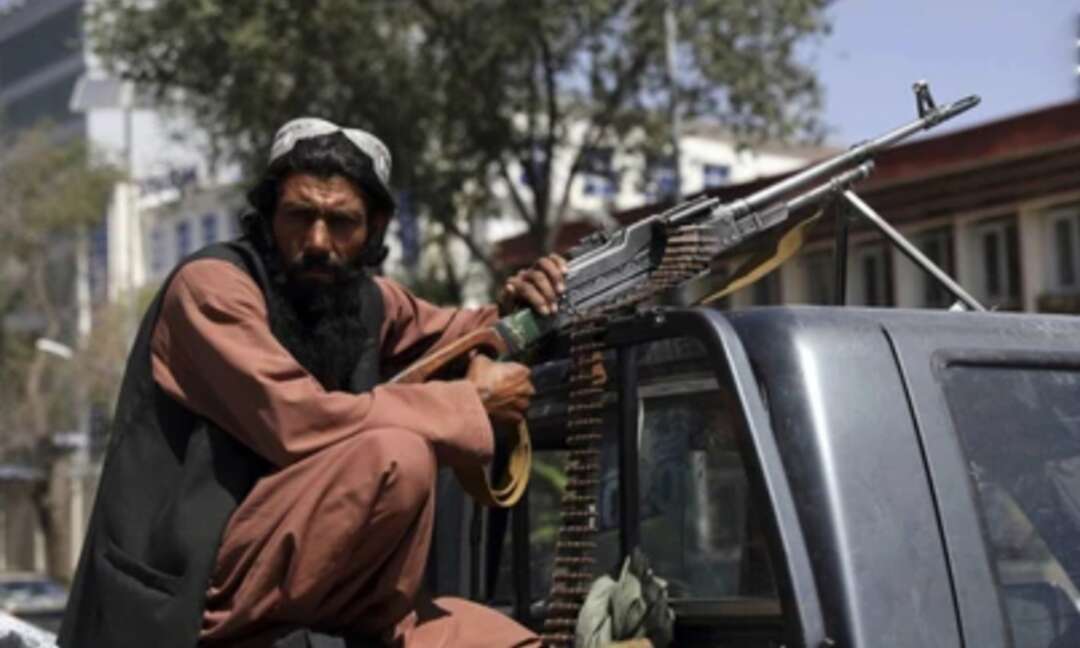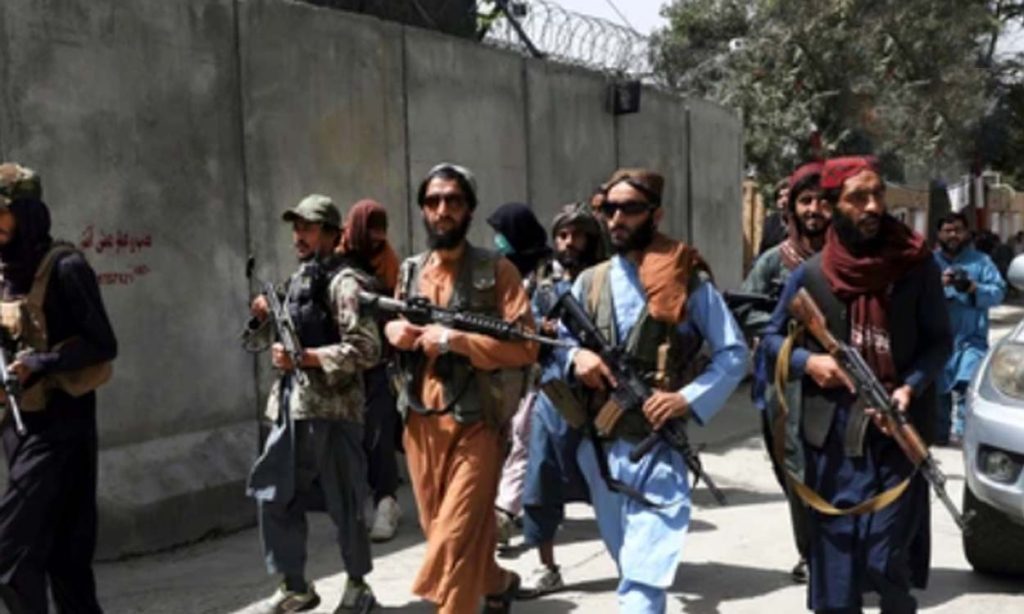-
Taliban fighters now manning checkpoints in Afghan cities and towns

The Associated Press reported that since the Taliban took over Afghanistan more than three and a half months ago amid a chaotic withdrawal of U.S. and NATO troops, their fighters have changed roles, from insurgents fighting in the mountains and fields to an armed force running the country.
Many Taliban foot soldiers now have new jobs: manning checkpoints on the streets and carrying out security patrols in and around Afghan cities and towns. Last month, several Taliban fighters posed for portrait photographs for The Associated Press on nighttime patrols and at checkpoints in the western city of Herat.
 Taliban fighters
Taliban fightersOne of them, 21-year-old Ahmad Wali, was on patrol in the village of Kamar Kalagh, north of Herat. A student in an Islamic religious school known as a madrassa, he said he joined the Taliban because he believed in the teachings of the Quran and was against the American presence in his country and against the previous Afghan government, which was widely criticized for corruption.
Read more: US became Britain’s biggest export market for financial services in run up to Brexit
Now, he said, he is very busy with his new responsibilities providing security in the area he was assigned to. He hopes both he and his country will have a bright future, and said he was “99% sure” better days will come for all people in Afghanistan.
After the Taliban takeover in mid-August, Afghanistan’s already dilapidated and aid-dependent economy careened into full-blown crisis. The international community has withheld hundreds of millions of dollars in financing that the country of 38 million people relied on. Billions of dollars in Afghan assets abroad have been frozen.
Read more: Britain considers approving limited government attendance at Beijing Olympics
Afghanistan’s banking system has been largely cut off from the world, and the new Taliban rulers have been largely unable to pay salaries, while jobs across the economy have disappeared.
Women have been mostly barred from the job market, except in certain professions, and from a high school education, while tens of thousands of people, including highly educated professionals, have fled or are trying to flee Afghanistan, leading to a massive brain drain.
Source: AP
You May Also Like
Popular Posts
Caricature
BENEFIT Sponsors BuildHer...
- April 23, 2025
BENEFIT, the Kingdom’s innovator and leading company in Fintech and electronic financial transactions service, has sponsored the BuildHer CityHack 2025 Hackathon, a two-day event spearheaded by the College of Engineering and Technology at the Royal University for Women (RUW).
Aimed at secondary school students, the event brought together a distinguished group of academic professionals and technology experts to mentor and inspire young participants.
More than 100 high school students from across the Kingdom of Bahrain took part in the hackathon, which featured an intensive programme of training workshops and hands-on sessions. These activities were tailored to enhance participants’ critical thinking, collaborative problem-solving, and team-building capabilities, while also encouraging the development of practical and sustainable solutions to contemporary challenges using modern technological tools.
BENEFIT’s Chief Executive Mr. Abdulwahed AlJanahi, commented: “Our support for this educational hackathon reflects our long-term strategic vision to nurture the talents of emerging national youth and empower the next generation of accomplished female leaders in technology. By fostering creativity and innovation, we aim to contribute meaningfully to Bahrain’s comprehensive development goals and align with the aspirations outlined in the Kingdom’s Vision 2030—an ambition in which BENEFIT plays a central role.”
Professor Riyadh Yousif Hamzah, President of the Royal University for Women, commented: “This initiative reflects our commitment to advancing women in STEM fields. We're cultivating a generation of creative, solution-driven female leaders who will drive national development. Our partnership with BENEFIT exemplifies the powerful synergy between academia and private sector in supporting educational innovation.”
Hanan Abdulla Hasan, Senior Manager, PR & Communication at BENEFIT, said: “We are honoured to collaborate with RUW in supporting this remarkable technology-focused event. It highlights our commitment to social responsibility, and our ongoing efforts to enhance the digital and innovation capabilities of young Bahraini women and foster their ability to harness technological tools in the service of a smarter, more sustainable future.”
For his part, Dr. Humam ElAgha, Acting Dean of the College of Engineering and Technology at the University, said: “BuildHer CityHack 2025 embodies our hands-on approach to education. By tackling real-world problems through creative thinking and sustainable solutions, we're preparing women to thrive in the knowledge economy – a cornerstone of the University's vision.”
opinion
Report
ads
Newsletter
Subscribe to our mailing list to get the new updates!






















